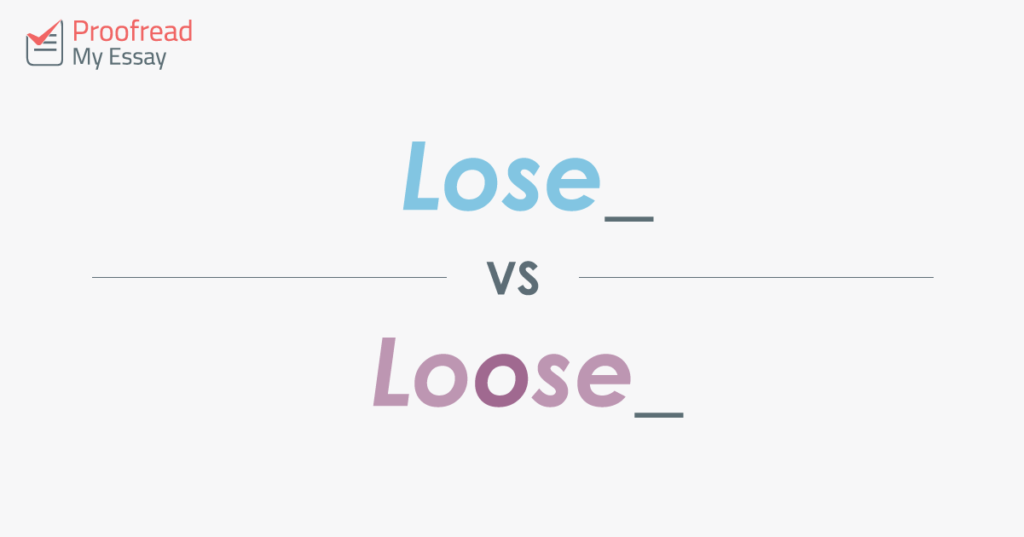The English language is often mysterious. Why, for instance, would the ‘-o-’ in ‘lose’ and the ‘-oo-’ in ‘loose’ make the same sound? Maybe this is why these words are often confused for one another.
However, there are important distinctions between the meanings of these terms, so here’s our guide to avoiding mistakes when using ‘lose’ and ‘loose’.
Lose (Misplace or Fail to Win)
‘Lose’ is pronounced with a hard ‘z’ sound, so it rhymes with ‘booze’. It has a few different meanings, but all of them are as a verb (i.e. an action word). Possibly the most common use is to mean ‘misplace’ or ‘cease to have’:
I always lose my glasses.
He started to lose his hair when he turned thirty.
The first sentence above describes someone misplacing something. The second sentence describes the balding process! There is a difference here (it would be difficult to misplace your hair unless you were wearing a wig). But both draw on the idea of no longer having something.
Another common use of ‘lose’ is to mean ‘fail to win’:
They will lose the match if they keep playing like this!
This sense of ‘lose’ can be applied to anything where there is a ‘winner’ and a ‘loser’, including sports, games, fights, battles and arguments. The simple past tense of ‘lose’ is ‘lost’ in all cases.
Loose (Release, Not Tight or Unrestrained)
The ‘-s-‘ in ‘loose’ is pronounced more softly, so this term rhymes with ‘moose’. It is most commonly used as an adjective (i.e. a word that modifies a noun) and can mean several things:
Find this useful?
Subscribe to our newsletter and get writing tips from our editors straight to your inbox.
- Not tightly fastened (e.g. Your trousers will fall down if they are too loose.)
- Free from confinement (e.g. There is a lion loose in the zoo.)
- Not densely packed (e.g. It is easier to dig in loose soil.)
- Lacking precision or strictness (e.g. We have some loose rules about attire.)
These senses of ‘loose’ are all a little different, but all draw on the idea of not being tight or strict.
It can also be used as a verb, when it means ‘release’ or ‘set free’, such as in:
She loosed an arrow towards the target.
We should loose the dogs to scare the intruder.
As shown above, the simple past tense of this sense of ‘loose’ is ‘loosed’.
Lose or Loose?
If you struggle to tell these words apart, keep in mind that ‘lose’ is always a verb. The only time ‘loose’ is a verb is when it means ‘release’ (e.g. ‘Loose the moose!’). Consequently, if you’re describing any other action, the correct word will be ‘lose’. And if you’re using a word as an adjective, it will always be ‘loose’ that you need. Remember:
Lose (verb) = Misplace or fail to win
Loose (adjective) = Not tight or unrestrained
Loose (verb) = Release
